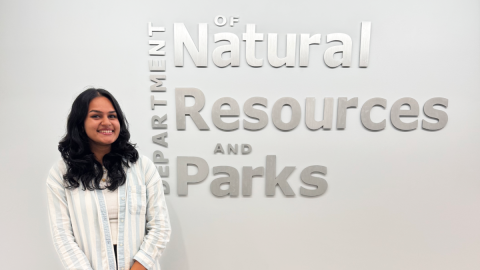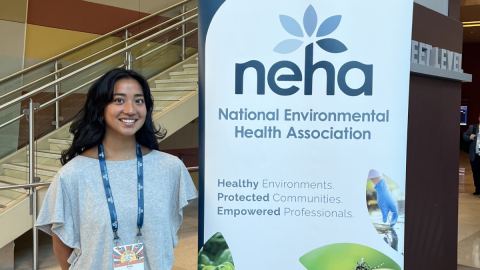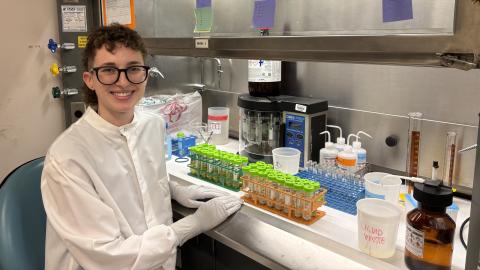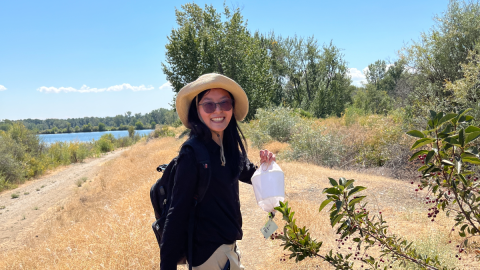
Cassady Surfleet
BS in Environmental Health, 2023
Hometown
San Luis Obispo, CA
Internship with:
North Pacific Seafoods
Editor’s note: This summer, 20 undergraduate students in the UW Department of Environmental & Occupational Health Sciences (DEOHS) are getting hands-on experience as interns with health agencies, nonprofits and private companies. In our occasional “On the Job” series, we feature some of their stories.
This crazy opportunity fell into my lap thanks to the awesome connections in our department!
Working with DEOHS faculty, I found my internship last summer doing environmental and safety compliance for North Pacific Seafoods, based in Seattle. They have five fish processing plants in rural Alaska, and I was in the village of Naknek on Bristol Bay.
The plant I worked in had about 500 workers, mostly H2B visa workers from Mexico, Serbia and the Philippines. They would process up to 1.5 million pounds of sockeye salmon in a 24-hour period and ship it all over the world. They make more than a billion dollars during those 6 weeks from catching salmon.
Putting out fires
The environment was fast and chaotic, working 12 hours per day, 7 days a week, during the six-week season. You’re up in a very rural and isolated place, and you have to do what you can with what you’ve got. A lot of our job was putting out fires.
For example, there’s a conveyer belt system bringing fish to the workers, and it was leaking. They don’t want to stop production. We had to come up with a fix. We ultimately ended up making a gutter out of PVC pipe that we cut in half and welded the ends and stuck it on the roof underneath this conveyer belt and had it flow into this tote that someone would forklift off into the waste system.
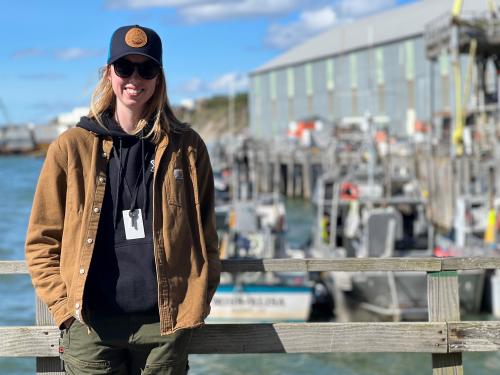
You have to think outside of the box, but it also makes you feel really capable. I felt really empowered after my time up there.
Protecting people and the environment
My job had both environmental and occupational pieces, like doing water sampling for drinking water and wastewater systems to make sure what we were putting into the watershed wouldn’t affect the fish we were taking out. It’s about keeping the workers and the product and the surrounding environment safe.
It was difficult work, and it was humbling. Being an English speaker, I was in the minority. The workers there were some of the kindest and hardest-working people I have ever met. They would come and do this job for 2-3 months of work and live off that for a year or 18 months.
Back home, they were doctors, scientists, teachers and firefighters. A lot of times, they were up there with their entire family, working to better things back home. We all had different backgrounds and sometimes spoke a different language, but they understood I was there to protect them and the environment.
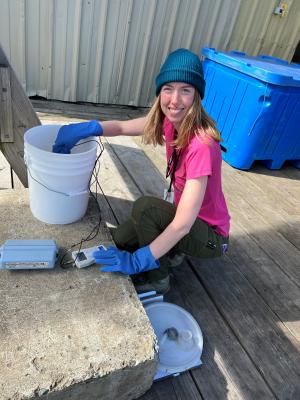
Internship leads to full-time job
Now I have been hired by the same company for a full-time job. I’ll be in Alaska this summer as an environmental and safety compliance officer working across the company’s five processing plants.
I really like that our major has an internship instead of a senior project. You get that work experience for your future, and you get to see if what you’re doing is what you want to continue.
There are a lot of relevant issues facing our population, our environment and our health. In environmental health, we’re learning about the problem, but we’re also learning about the steps to do something about it, and that’s really important to me.
